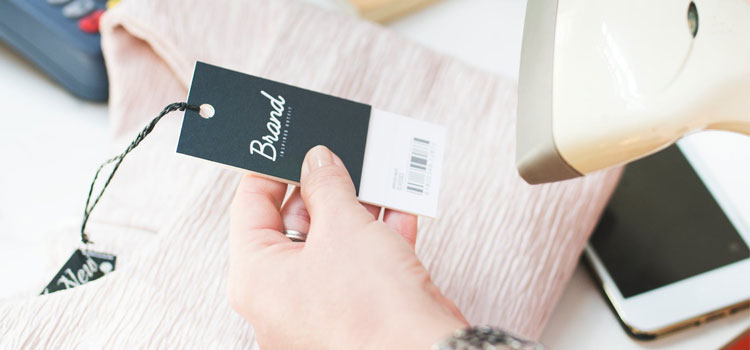If you’re new to ecommerce and marketing, there are two terms you’ll encounter that will probably confuse you at the beginning of your journey:
- Inbox Dollars - Get paid to check your email. $5 bonus just for signing up!
- Survey Junkie - The #1 survey site that doesn't suck. Short surveys, high payouts, simply the best.
- Nielsen - Download their app and get paid $50!
private label vs. white label
Do you know how to differentiate them?
It’s Okay… even old-timers who have been active in the ecommerce space for years still get these two jumbled up and use them interchangeably.
Private label and white label are both used for describing products sold by a reseller or retailer. They are very similar, but each has significant differences and advantage/disadvantages that you should know about.
What is a Private Label Product?
A private label product is any product you contract a manufacturer to create based on specifications you sent. Once the product is ready, you sell it exclusively under the name (brand) you choose, and market it how you want.
You’d be surprised at the number of private label products are out there in the market.
- Nike, for example, buys a bulk of products from their trusty manufacturers, place Nike tags on all of them, conduct quality control, then sell it.
- Rihanna’s makeup line “Fenty Beauty” have all its products made by Kendo Brands. This third-party company also produces cosmetic products of popular brands like Marc Jacobs and Kat Von D.
Because you are only paying another company for manufacturing these private label products, this business model has the potential of bringing in a large profit.
Private labeling is mostly used for physical products, which is why there are plenty of private label cosmetics, clothing, household items, and other types of products without consumers knowing the actual origin of the products.
I covered private label products in-depth a few days ago here.
What is a White Label Product?
The term “white labeling” was coined in the music industry at the time when promotional vinyl copies of music are sent to DJs in blank, white sleeves (or as they called it “white labels”) so that DJs wouldn’t have any pre-conceived notions about the music if they saw names of the artist written on the vinyl.
The same concept can be adapted to white label products.
A white label product is any generic product (or service) created by one manufacturer that other retailers rebrand and sell, making it appear as if they made it themselves.
Each retailer can resell the white label product under his/her own branding.
Because manufacturers already made the product before you come into the picture, this means you can’t have the product customized with your specifications.
The only changes you have control over are the packaging, branding, and marketing of the product.
If your company already has an existing (and popular) brand, this is good news since you can just tag the product as your own and let your popularity do the marketing for this new product. There’s a higher chance you’d succeed in selling white label products.
Because you don’t have to undergo product and market research, you’ll enjoy a higher profit margin due to less spending on product development and quicker startup (since the products are ready for selling).
It’s hard to list successful examples of white label products, since the entire concept of white labels is anonymity (no one knows who exactly manufactures the product). But here’s an awesome example:
- Dollar Shave Club sells up to 1 billion of razors yearly, but none of those were produced by the company. Other companies produce the razors, which Dollar Shave Club buys and rebrands with their own logo, then sell it to subscribers who receive a box of shaving/grooming products weekly, monthly, or how often they want to.
- Dollar Shave Club’s concept was such a hit that Unilever bought the company for $1 billion in 2016.
White labeling is often used in software as a service (SaaS), but can also be used in actual provides and services.
What is the Difference between White Labeling and Private Labeling?
First, let’s discuss the similarities:
- White label and private label products are created by a third-party manufacturer/s
- You have total control your marketing and advertising campaigns
- You can re-brand the products to whatever name you want
- Manufacturers do not have trademarks to the products you buy
See how it can be so confusing?
White labeling and private labeling seemed so alike. But here are several key differences:
No joke. Here are the fastest ways to make easy money online. Click here to see how.
Customization of products
- Private label products: Private labeling allow retailers to customize products, which means you get to sell items that look different to your buyers (even if the manufacturer sells a variation of your product to another retailer.
- White label products: White labeling means the products are already made, even before you make a deal with the manufacturer, so the only customization option you’d have is with packaging.
Exclusivity
- Private label products: Retailers can send manufacturers specifications of the product, which means it’s highly unlikely for another retailer to sell products identical to yours.
- White label products: White labeling isn’t so exclusive, since manufacturers offer the same product to many retailers like you.
Cost and ROI
- Private label products: As a retailer, you’d invest more money with private labeling since you have input from product research, product development and up to marketing. However, expect higher ROI because you’ll be selling a seemingly unique product in the market and consumers like that.
- White label products: You can buy the general products at a cheaper price, but you’d have to spend money marketing them more aggressively (since you might have competition selling the exact same thing). If done right, white label products can also bring in good money.
3 Ways to Sell Your Private Label or White Label Products
Now that we know how to differentiate the two, let’s check out which selling method fits private labeling and white labeling.
Is one better than the other, when it comes to selling on your own branded website?
How about trying to sell in stores?
1. Dropshipping private label vs. white label products
In a dropshipping setup, you partner with a dropshipping supplier who will manufacture, package and ship the products to your customers. The benefits of dropshipping is that you don’t have to stock inventory, rent a warehouse for your business, or even handle shipping.
Read more about dropshipping here and learn how it could be an awesome path to reselling goods online.
Private labeling + Dropshipping
With private label products, manufacturers are open to your ideas – you can dictate product specifications, packaging, and so on.
This comes at a higher expense to you, but the cool thing about private labeling is that the products get to be branded with your company name and branding.
When combined with dropshipping, private labeling can be very efficient in distributing YOUR products to YOUR customers.
Even if you don’t get to touch the final product or handle shipping, when the product reaches your customer, all feedback about that product goes to you, your company and your brand.
You must get a respectable manufacturer, since you don’t get to conduct quality control over your products, since technically, they go from the factor and straight to your customers’ door.
White labeling + Dropshipping
When combined with the concept of white labeling, dropshipping can be double powerful, especially if your customers are wholesalers willing to do the rebranding themselves.
Unlike the regular white labeling approach where you can stamp your brand onto the generic product before sending to your customers, this isn’t possible when dropshipping is involved since the whole point of dropshipping is to not have to be physically involved with the packaging, handling, shipping and customer support of the entire transaction.
In this setup, your customers will receive the products blank (except for returns instructions). There will be no information about who manufactured, supplied and shipped the products to the customers. A white label will be included in the package that details a generic return address.
No one will know your role in this business model. You will be anonymous, so make sure you have a contract agreement and payment arrangements with the supplier in place before leading buyers their way.
2. Selling Private label vs. white label products via FBA
Fulfillment by Amazon (FBA) is a service wherein you store your products in Amazon fulfillment centers, and then the company picks, packs, ships, and provides customer service for these products.
Like dropshipping, the benefit of selling via FBA is that you won’t need any warehouse or brick-and-mortar shop to store your products.
You can sell both private label and white label products via FBA. Amazon accepts these products with open arms and give you a MASSIVE platform to sell your products in.
The key, however, is to have an edge over your competition, especially if you decided to go with white label products.
If you’re interested in step-by-step instructions on how to sell on Amazon, I recommend this Amazon selling training.
You can make money from home and it doesn't have to be challenging. Click here to see how.
3. Selling Private label or white label products on your own website
If you decide on selling products on your own website, your success will depend in several factors, including:
- how unique your product is
- how creatively you market your product
- how popular your website becomes
- how much time and effort you can commit to the website
- level of your marketing skills
Dollar Shave Club didn’t have a unique product, but the original owners was smart enough to cash in on the subscription-box theme that was going on at the time and delivered a totally cool product that will be in-demand regardless of season, holiday, or trends.
The Bottom Line
Private label and white label products allow virtually anyone to become business owners without having to set up an entire warehouse, hire hundreds of people, or lease a space to stock inventory.
As I discussed above, both have their pros and cons, and it shouldn’t be a matter of private label vs. white label. Ultimately, the type of product you’d choose should fit your brand, resources, business goals, and commitment level since any ecommerce business requires hard work.





